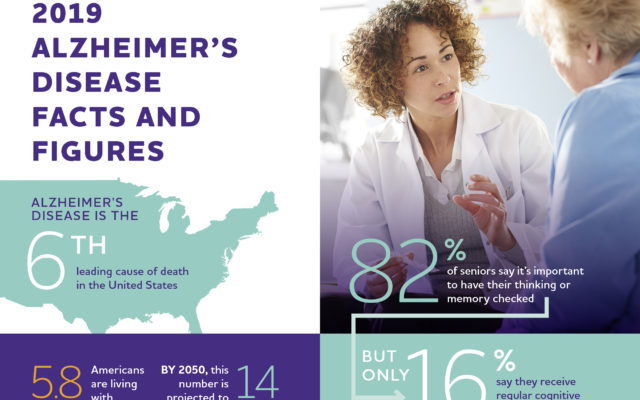Cognitive assessment important for those over 65

Though people are remembering to ask their doctor to check out their physical health as they age, they aren’t doing so with their brain health.
“When you talk about cognitive assessment of the brain, less than 16 percent of individuals over 65 are actually getting that assessment,” said Juliette Bradley, Director of Communications with the Alzheimer’s Association – Heart of America Chapter. “We know that it’s out there and Medicare annual wellness visit will cover that. What we’re finding is that even though individuals realize that it would be great to know if they’re having thinking problems or memory problems, they’re not asking for that assessment.”
Nine of out of 10 seniors (93 percent) say they trust their doctor to recommend testing for thinking or memory problems, but on average, PCPs assess just half (50 percent) of their senior patients.
“People are not mentioning that they have symptoms,” said Bradley. “A lot of us don’t mention that we have symptoms for a condition that we don’t know we have. It’s important that someone possibly go to that visit with them. A son or a daughter or a spouse and just kind of say, while they may not think that they have memory issues, but I’d like you to test it.”
Anyone over 65 should have the assessment annually. It’s best if it is with their primary care physician.
“These are the people who can actually say, maybe this isn’t Alzheimer’s,” said Bradley. “Maybe this isn’t dementia. Maybe this is a urinary tract infection. Those cause some memory issues. Maybe this is something completely different. They are the ones who can go through the list and say, it’s not that, it’s not that. We’re not going to say it’s Alzheimer’s right up front. There’s many tests that need to be done to make sure it’s not something else.”
Half of all seniors (51 percent) are aware of changes in their cognitive abilities, including changes in their ability to think,
understand or remember, but only four in 10 (40 percent) of these seniors have discussed these concerns with a healthcare professional.
Helpful tips and resources are available at alz.org, including the 10 Warning Signs of Alzheimer’s, Why It’s Important to Get Checked and How To Prepare for Your Doctor’s Visit.



